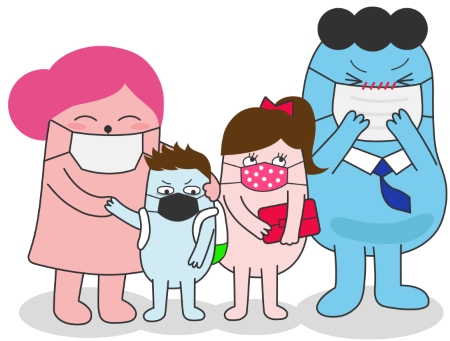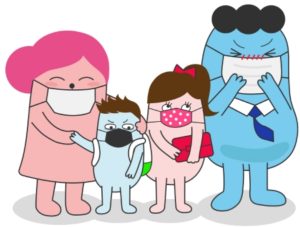Mask 5-shift System in Korea Needs Modification

Preventing cold by putting on mask
April 9, 2020

On March 5th, the South Korean government announced “Mask Supply and Demand
Stabilization Measures”. These measures introduced a policy called the “Mask 5-shift
system”. The demand for masks is rapidly increasing because of the increase in people who
were diagnosed with COVID-19, so this system was introduced.
Through the “Mask 5-shift system”, people can buy 2 public supplied masks per week only
on designated days, based on the end of the birth year. “Public supplied mask” is a mask that
is controlled by the government and provided for relatively low prices.
The government reserves and distributes 8 million masks of the 10 million masks that are
produced per day. 2 million of them are allocated to medical institutions and special
management areas for infectious diseases firstly. Another 6 million masks will be sold
through a 5-shift masks system, at pharmacies, post offices, and other public places of sale.
According to “Mask 5-shift system”, people only can buy masks on Monday if the birth year
ends with 1 and 6, on Tuesday if it ends with 2 and 7, on Wednesday if it ends with 3 and 8,
on Thursday if it ends with 4 and 9, and on Friday if it ends with 5 and 0. If you haven’t
purchased a mask during the week, you can buy it on weekends.
As the mask 5-shift system has stabilized for a month, stocks of masks piled up in many
pharmacies. Demand for public supplied masks seems to have decreased because of the
increased supply of masks and the use of cotton masks with filters.
This raises the need for improvement of the public supplied mask 5-shift system. For
example, the government could allow people to purchase any day of the week instead of a
designated day, and expand the number of purchases per week.
However, the government said that no decision has been made yet about the mask 5-shift
system. Instead, the government decided to extend the range of proxy purchases by a family
from April 6th. It will be extended from people who are born after 2010 to people who are
born after 2002. Patients who are hospitalized at nursing hospitals, people who are admitted
to nursing facilities among long-term medical care benefits recipients, and patients
hospitalized at general hospitals have also been added to the permission range of proxy
purchases.

Jein Lee • May 26, 2020 at 2:42 am
I love the image its so cute